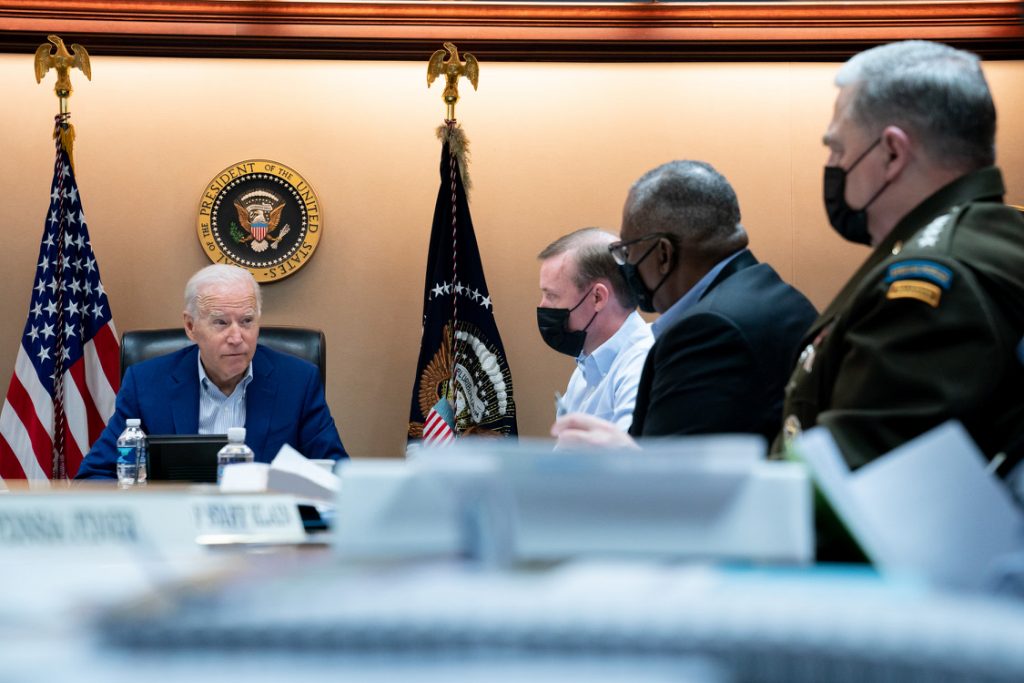ISIS-K Attack in Kabul Raises Questions About Future of Counterterrorism in the Region
Two local experts discuss last week’s terror attack that killed more than 150 Afghan civilians and at least 13 U.S. service members.

The terrorist group ISIS-K’s bombing last week outside the Kabul airport has opened up new questions about the future of counterterrorism efforts in Afghanistan and across the region moving forward. The explosion killed more than 150 Afghan civilians and at least 13 U.S. service members. Since Thursday, U.S. forces have carried out two drone strikes against ISIS-K, one against militants thought to be involved in Thursday’s bombing and another meant to prevent another terror attack. On Monday, there are reports that 10 civilians, including several small children, were killed by the U.S. drone strike in Kabul on Sunday, according to family members.
“What transpired at the airport last Thursday is just a continuation of the increased capability [ISIS-K] has.” –Javed Ali, University of Michigan national security expert
These events bring up bigger questions about the future of terrorism and counterterrorism in Afghanistan and throughout the region. Will this be an opportunity for terrorist organizations to grow in strength and capabilities? Or will the U.S. and our allies be safer overall with troops no longer fighting a 20-year conflict with no good outcome in sight?
Listen: Local experts discuss last week’s terrorist attacks in Kabul, ISIS-K and the future of counterterrorism.
Guests
Javed Ali is an associate professor of practice and a national security expert at the University of Michigan’s Gerald R. Ford School of Public Policy. He served as a senior director of counterterrorism at the National Security Council (NSC) in 2017 and 2018
“[ISIS-K] had conducted a series of heinous and brutal attacks … over these last several years,” says Ali. “So what transpired at the airport last Thursday is just a continuation of the increased capability this group has.”
Peter Trumbore is a professor and chair of the department of political science at Oakland University. He is an expert on terrorism and international affairs.
“I think we need to be careful in ascribing to any group any capability greater than they’ve already shown us,” says Trumbore. “What [ISIS-K] has shown us is an ability to carry out attacks against civilians in Afghanistan. But that’s very different than posing a serious transnational threat.”
Trusted, accurate, up-to-date.
WDET strives to make our journalism accessible to everyone. As a public media institution, we maintain our journalistic integrity through independent support from readers like you. If you value WDET as your source of news, music and conversation, please make a gift today.
